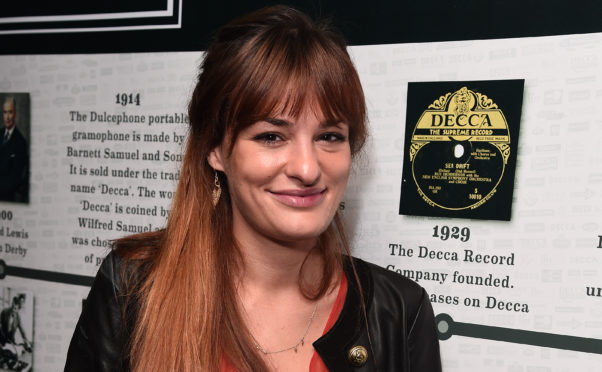
Acclaimed violinist Nicola Benedetti has revealed the physical and mental toll of her world-renowned career.
The 32-year-old said that playing a violin for an average of six hours a day can turn into an obsession with the instrument while inflicting physical injuries.
The soloist, who began performing at the age of four, has spoken about the physical cost of her perfectionism.
By the age of 18, after winning the BBC Young Musician of the Year, she was performing more than 100 concerts a year with some of the world’s greatest orchestras.
For Nicola, who plays a £2m Stradivarius, the demands of playing at such a level left her “obsessed.”
She took up the instrument after copying elder sister Stephanie at her parents’ Ayrshire home. Nicola still practises between three and seven-and-a-half hours a day, and still has the red scars to prove it.
“Holding of the violin is something a lot of people with struggle with. Let’s be honest it’s one of the most awkward instruments in the world, and makes you all lopsided and sticks out. It is just not comfortable – a lot of people find that placement of the violin on the shoulder and into your neck extremely uncomfortable.
“A couple of years ago anyone following me would have seen that I had like either a horrible mark here (on my collarbone) or a plaster.
“It looked like a puncture wound and was constantly painful, and the skin would break.”
Nicola, who signed a multi-million-pound record deal at 16, was loaned the 1717 Stradivarius, named Gariel, by international banker Jonathan Moulds. It was previously owned by an ancestor of Princess Diana.
Despite modifications and extra padding, Nicola feels the strain of performing – for up to two hours nightly – even to her fingertips. She wraps her bow in cloth “just there to provide a little extra support and comfort for my thumb.
“It is just stamina, stamina all the time, my thumb was killing me, even if I was trying to stay relaxed. It was killing me. This material tends to soften the blow a little bit.”
Nicola, via her YouTube podcast, added: “I have been through many periods of my life when I have obsessed over some part of the equipment or another, and I think it can be a really dangerous path to go down
“You’re absolutely sure that the thing that is wrong with your playing, the reason you are uncomfortable is one thing, or the other.
“It is either the bow grip, or the strings are not right, or there is something wrong with the bridge, shoulder rest, or chin rest.
“I would say that at some point you have to let go of it and focus as much as possible on how you are doing, physically and how you are doing mentally.”
Nicola added: “It was a big turning point for me a few years ago when I just let go of obsessing over all of that stuff.
“What I would realise is I would be absolutely fixated on ‘there is something wrong with the violin, something wrong with the violin’ or with some apparatus.
“I realised, it is just a general lesson – as much as equipment is important to take seriously, do not obsess over it. Focus on your physical and mental wellbeing.”
Since her 2004 BBC win, Nicola has scaled back her schedule but she still performs in more than a dozen countries in a year.
Nicola, the youngest ever recipient of the Queen’s Medal for Music in 2017 and awarded a CBE in 2019, is now establishing her own foundation for musical education.
She has also campaigned against councils axing music instrumental lessons, and fees which restrict the opportunity to learn.
In the past 12 months, she has worked with more than 2,000 students and 500 teachers.
In Scotland and abroad, she has supported the Sistema charity, to bring music to communities and foster confidence, discipline, team-work, pride and aspiration in children and young people.
It is based on Venezuela’s El Sistema education programme and its philosophy of “social action through music”.

Enjoy the convenience of having The Sunday Post delivered as a digital ePaper straight to your smartphone, tablet or computer.
Subscribe for only £5.49 a month and enjoy all the benefits of the printed paper as a digital replica.
Subscribe